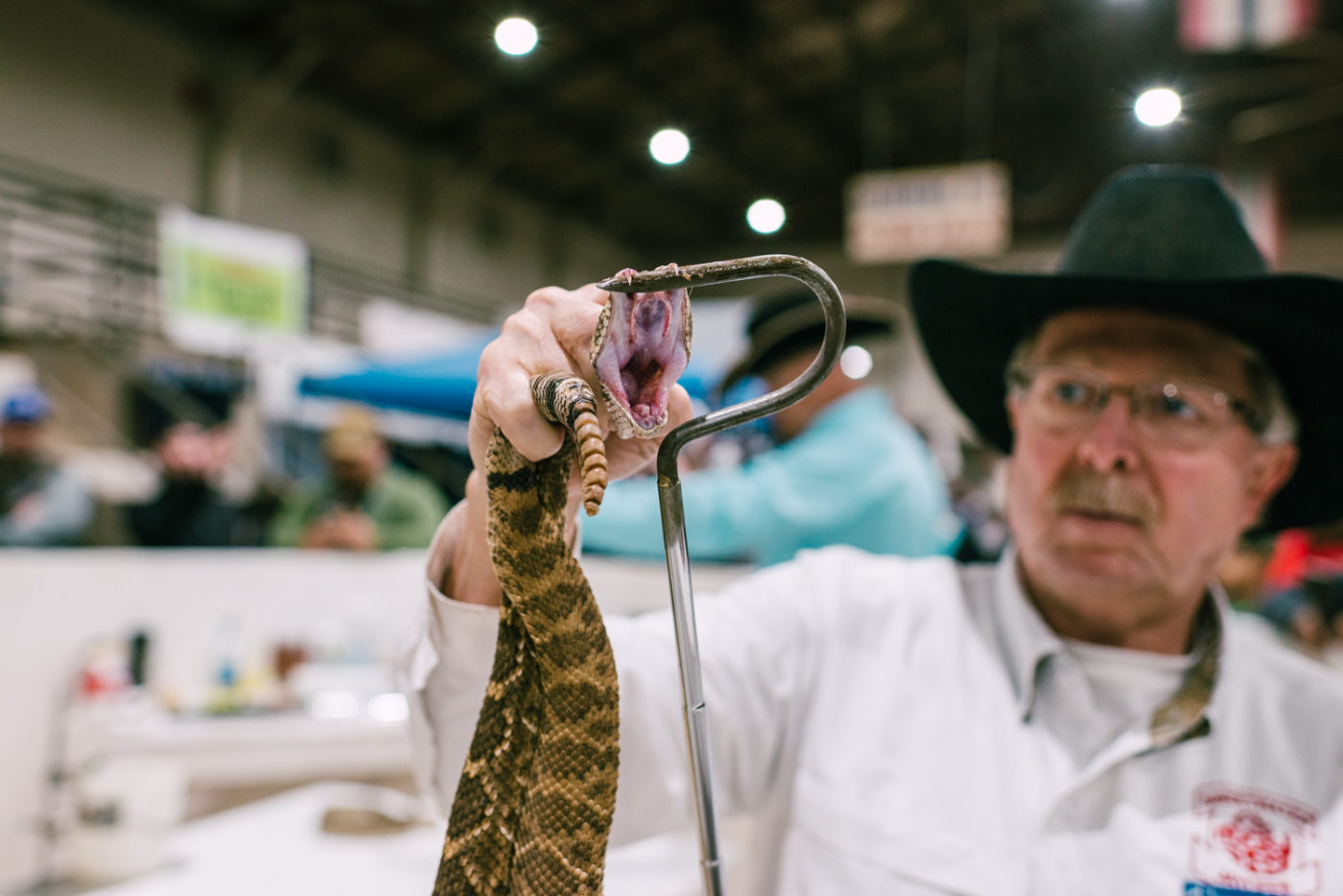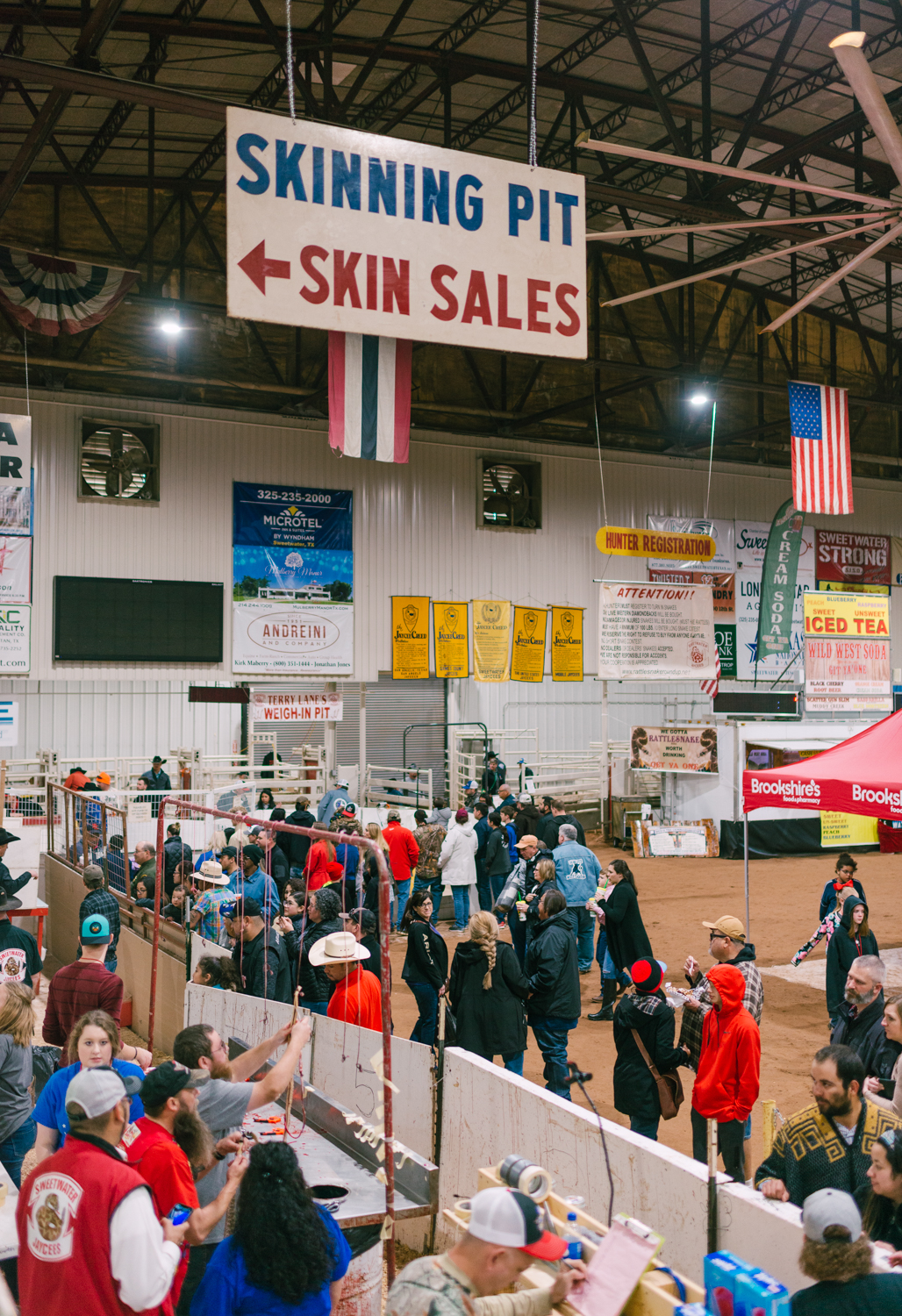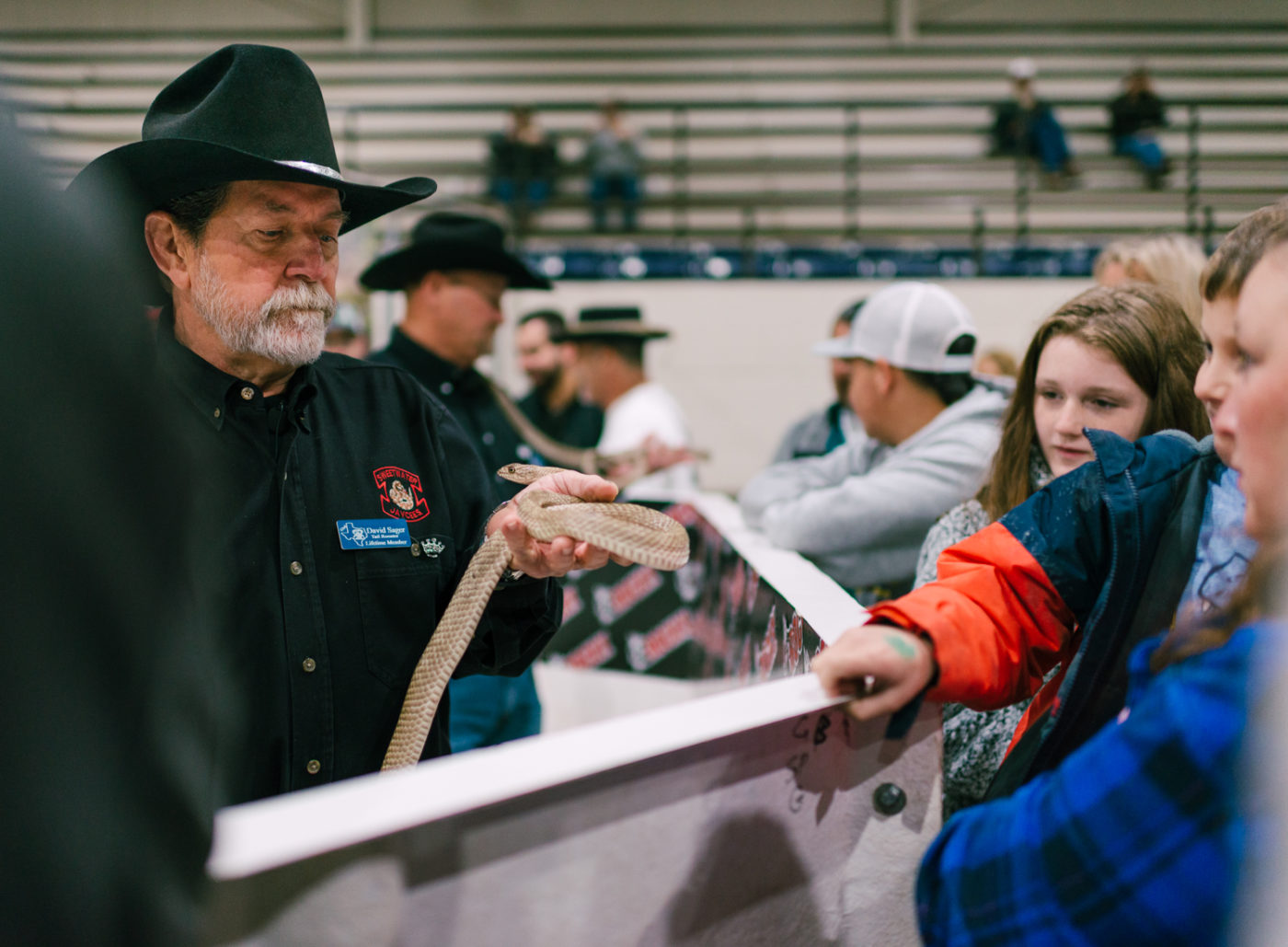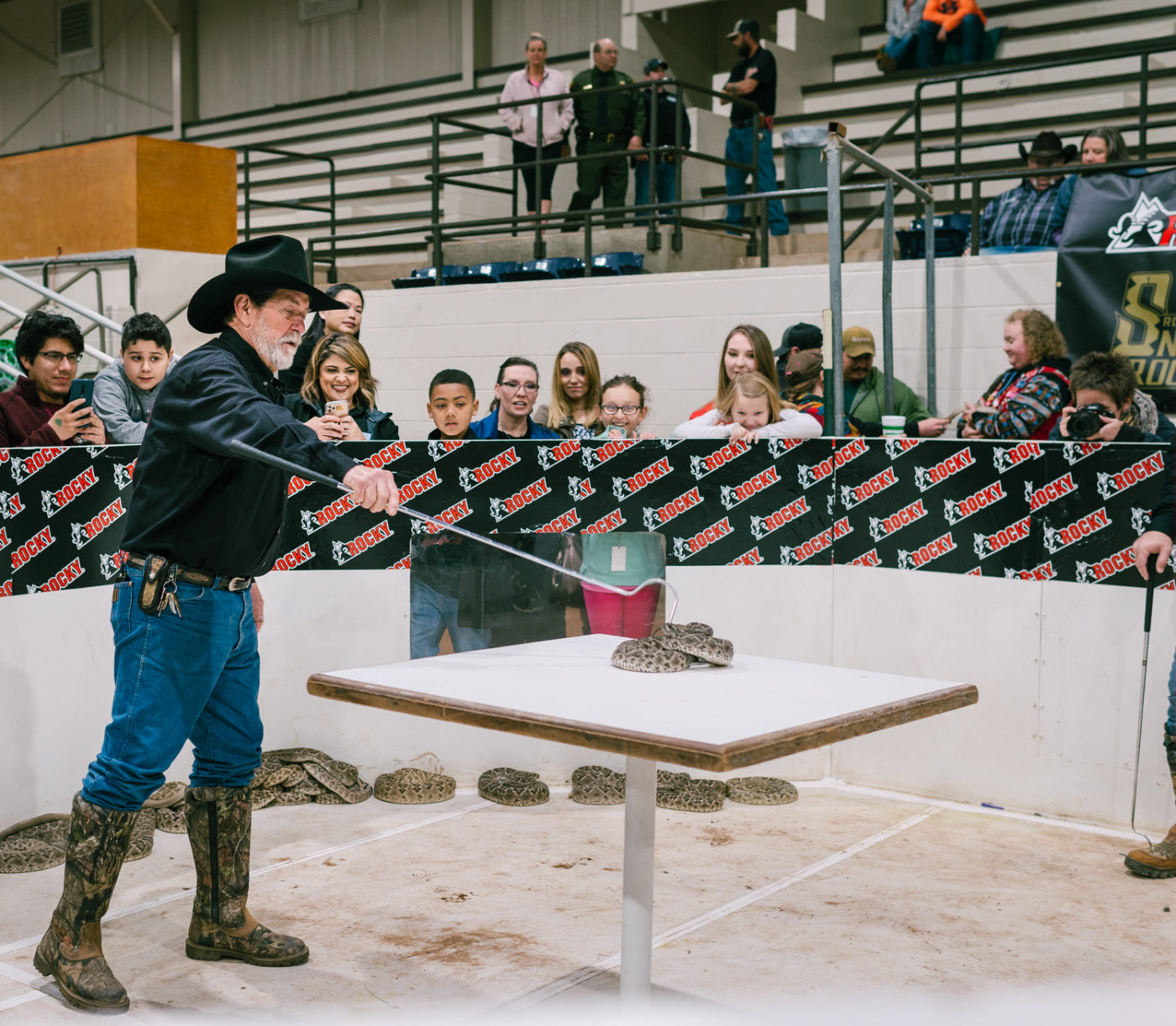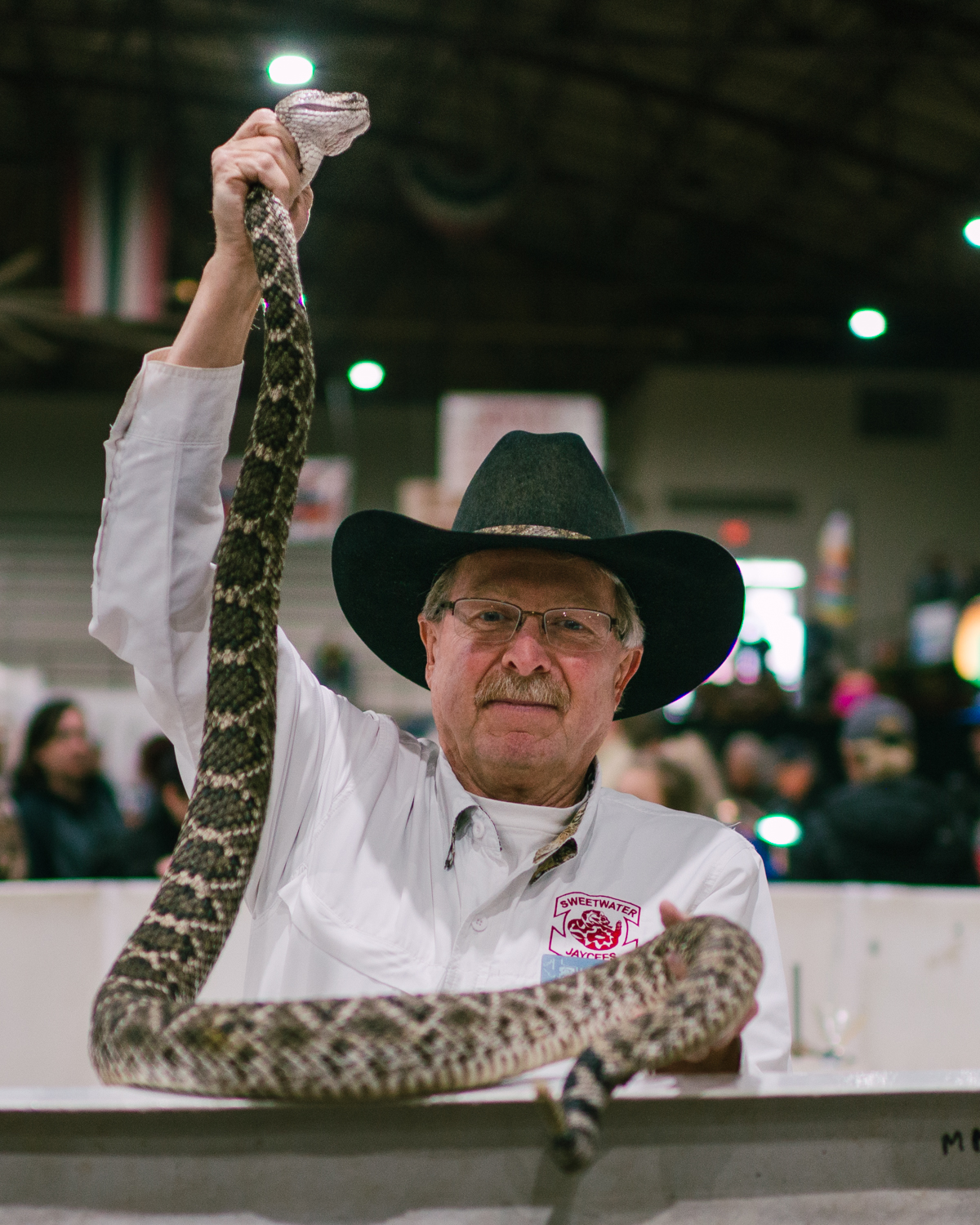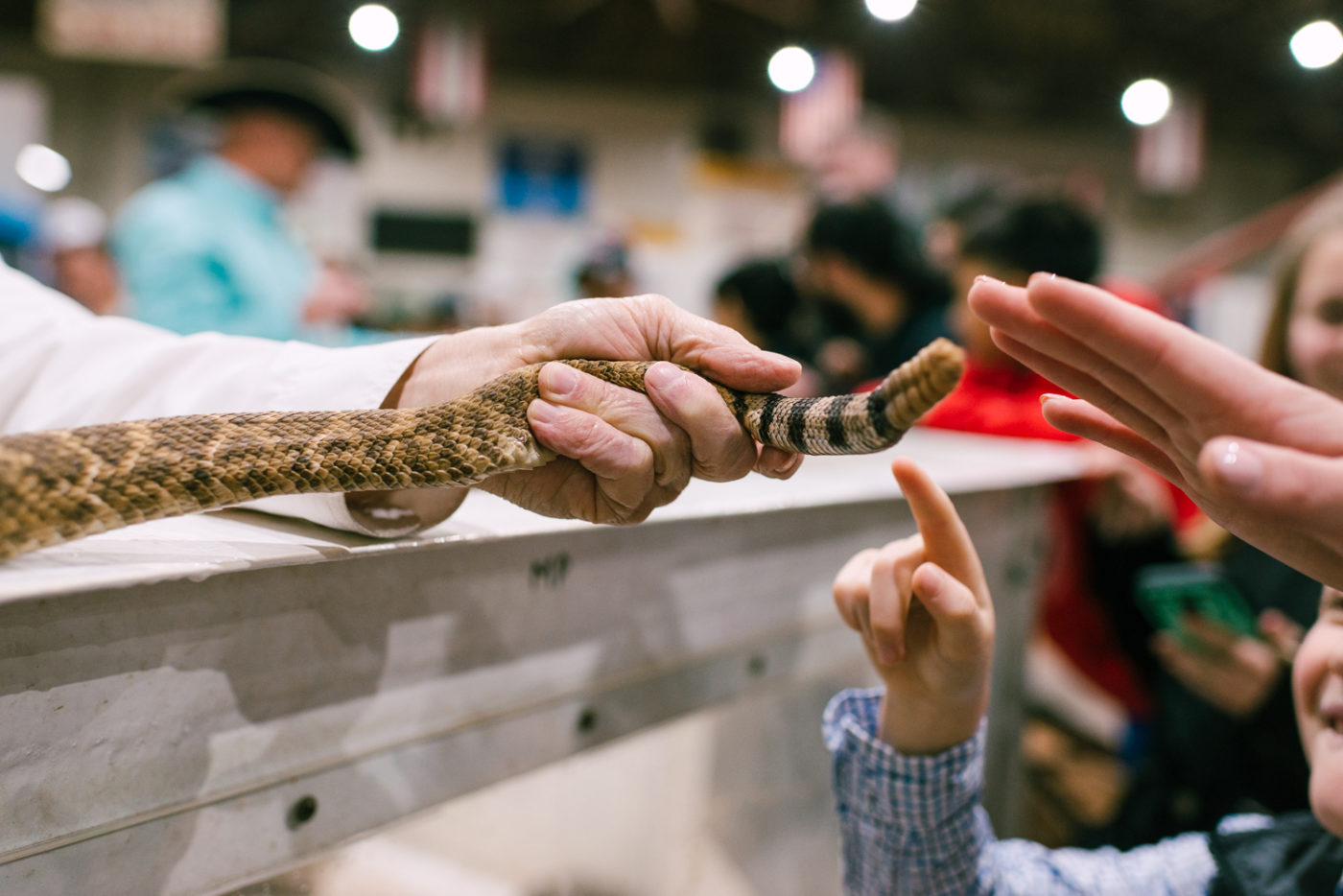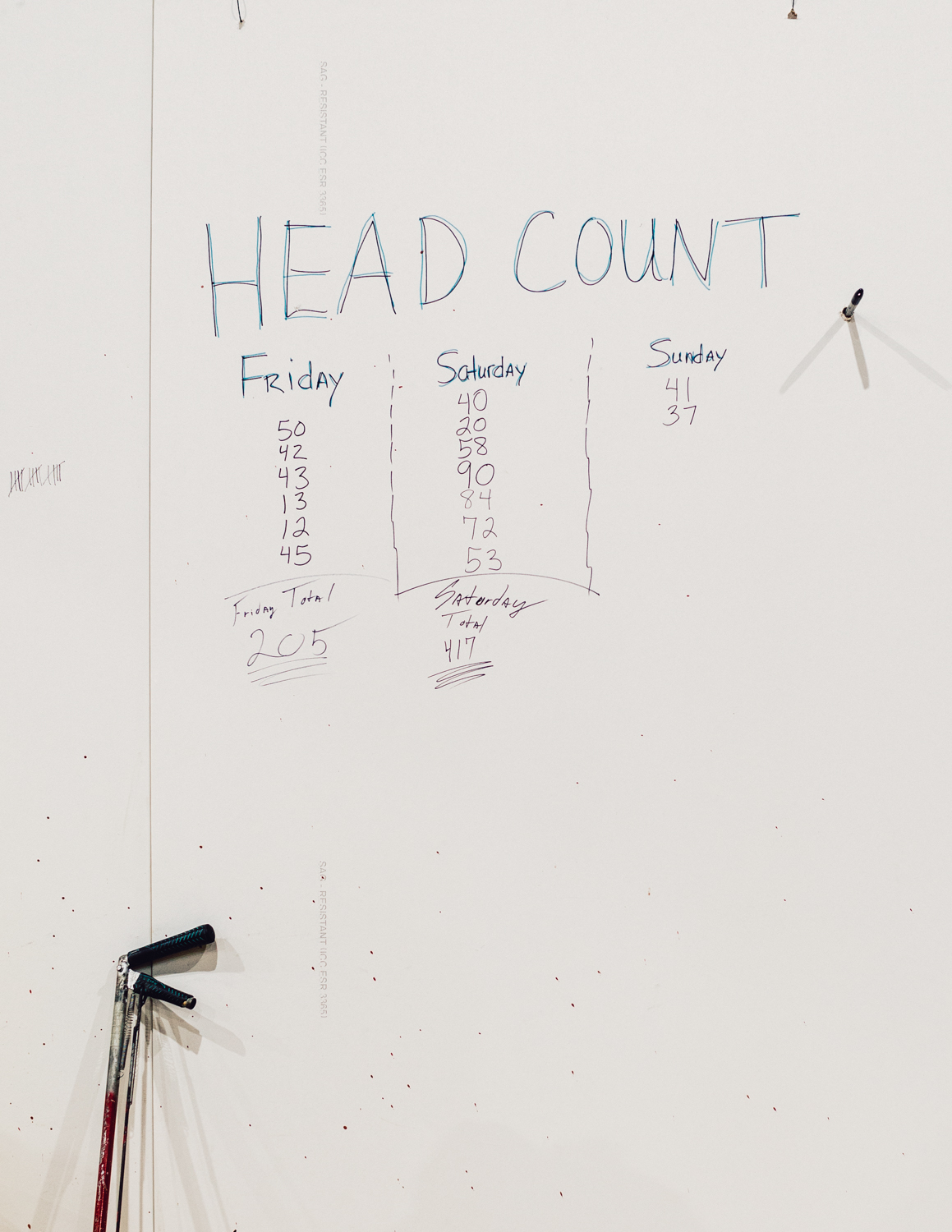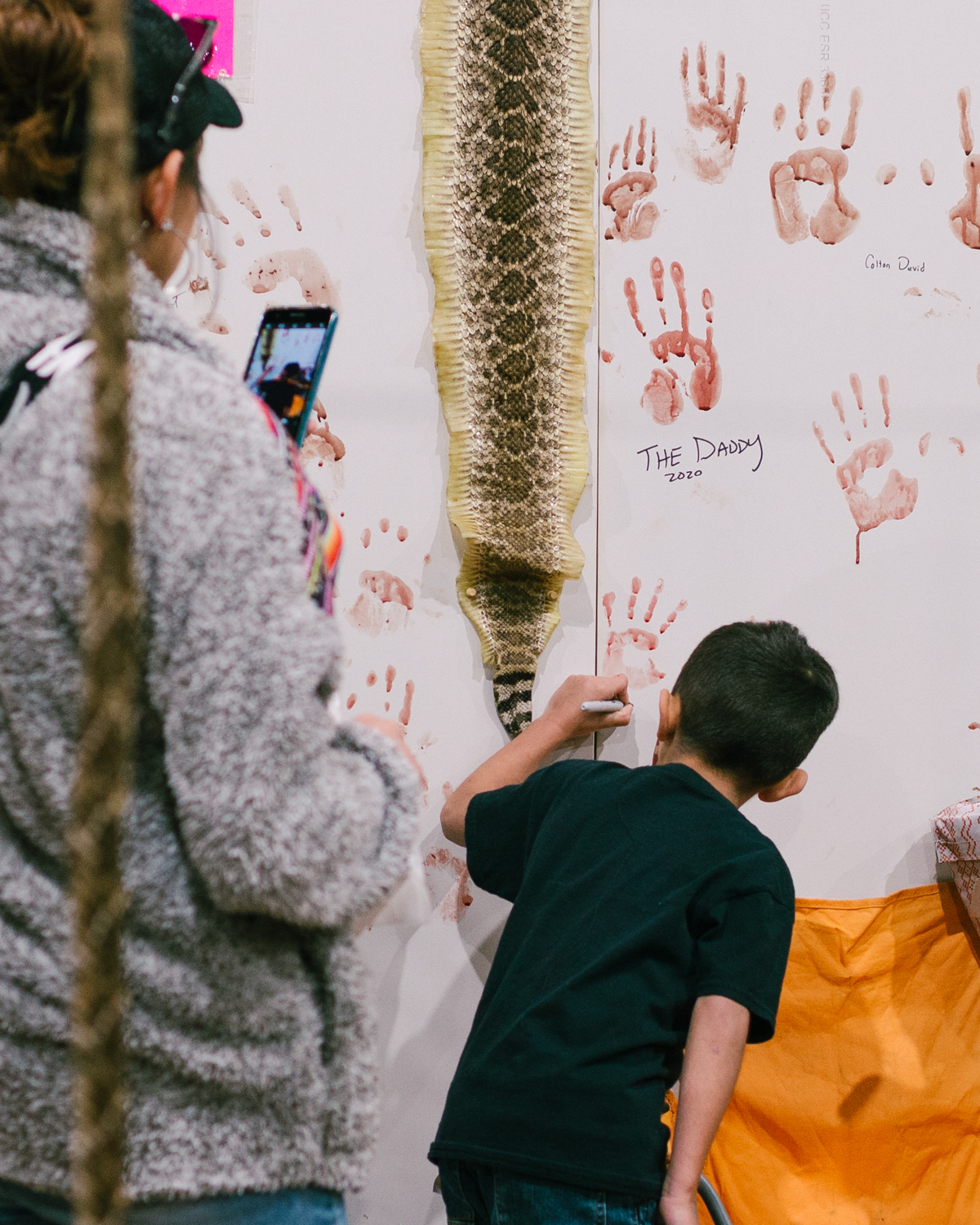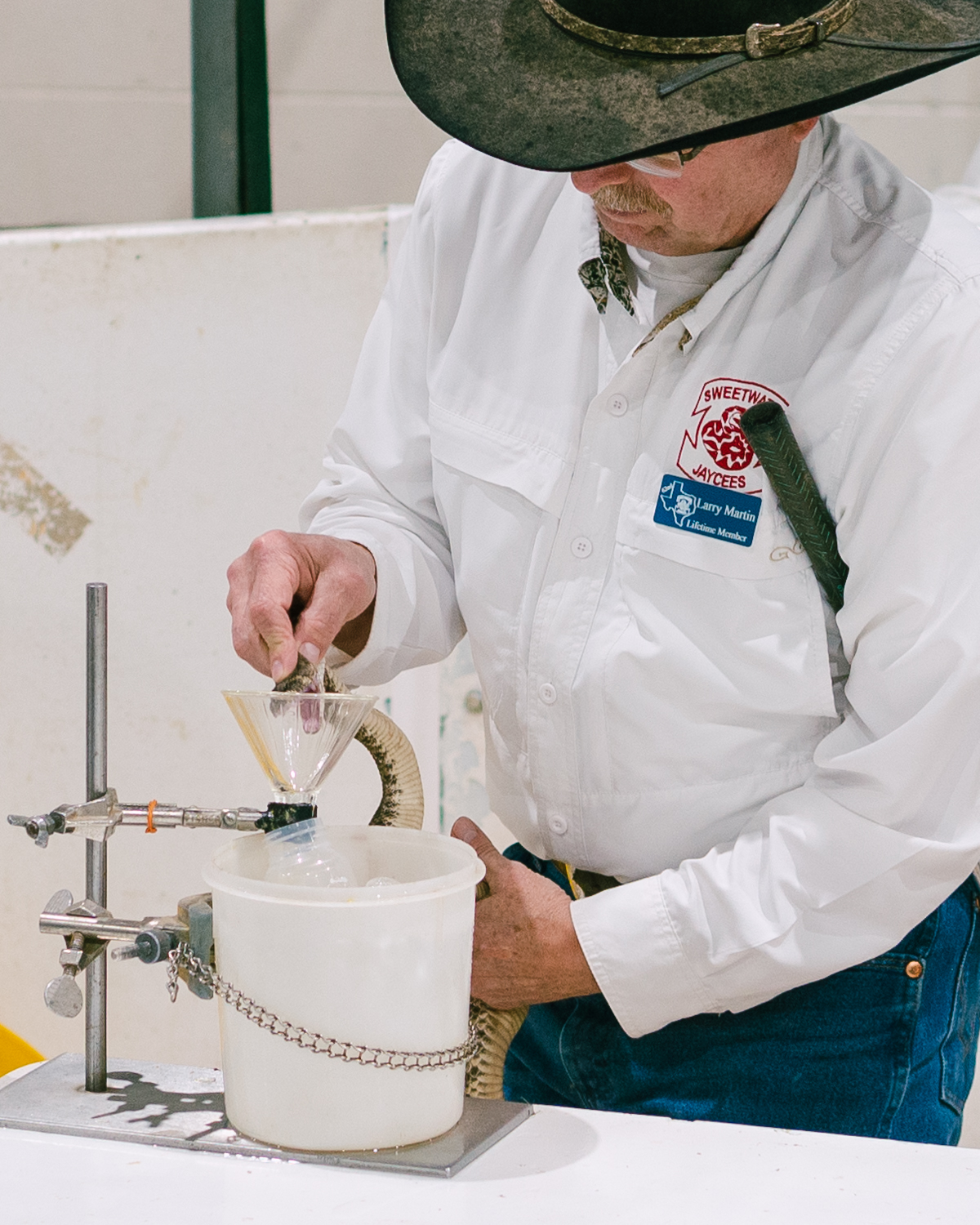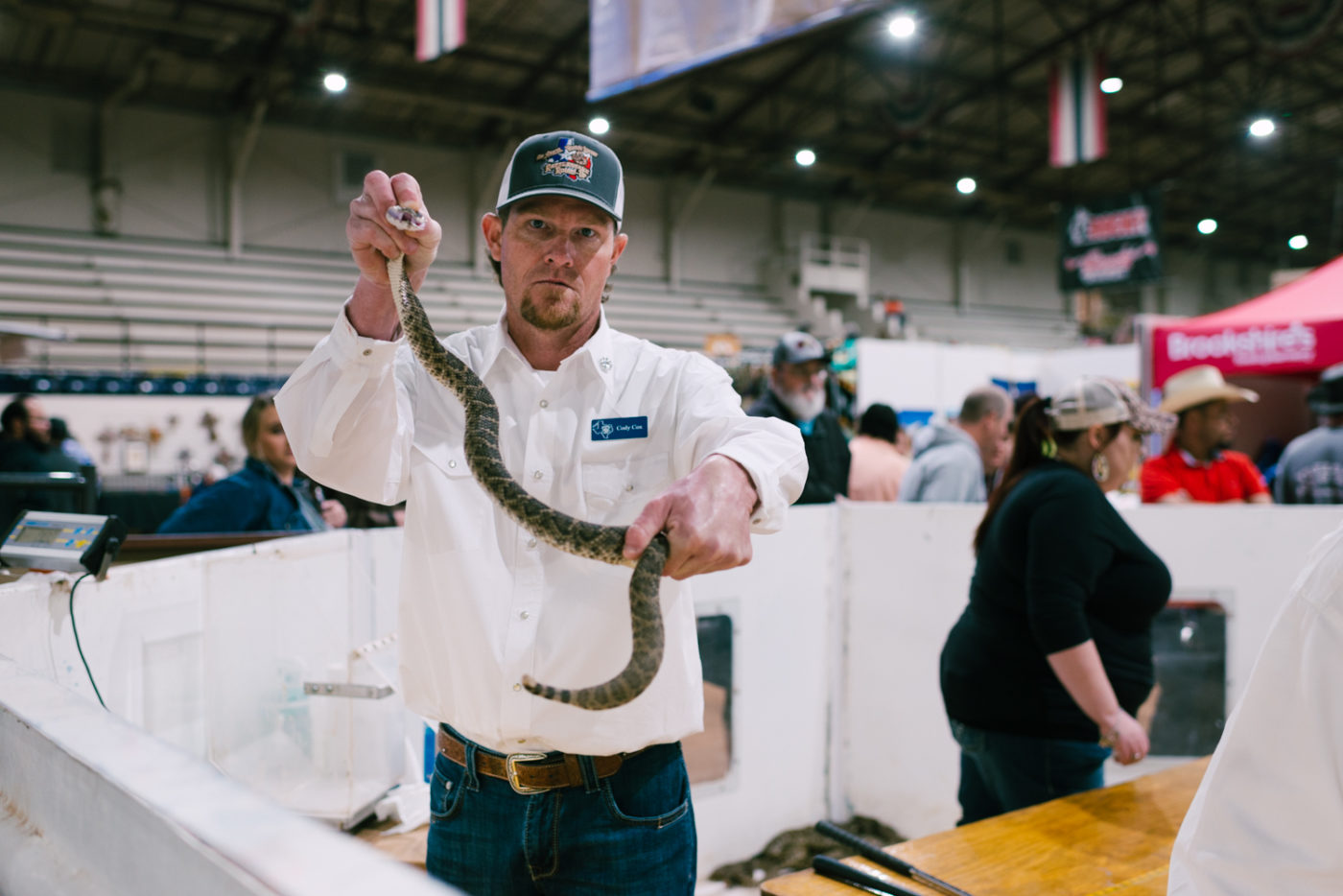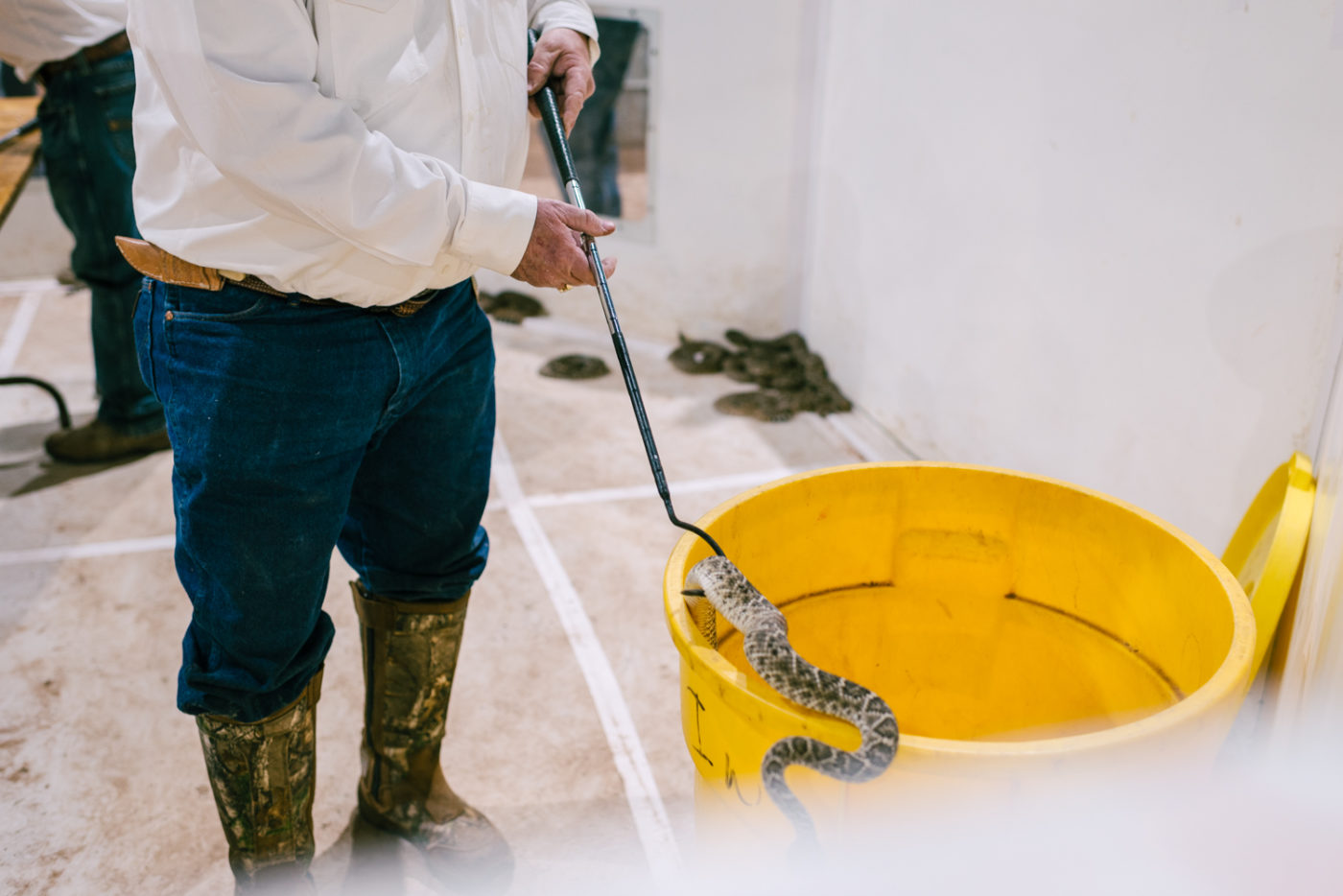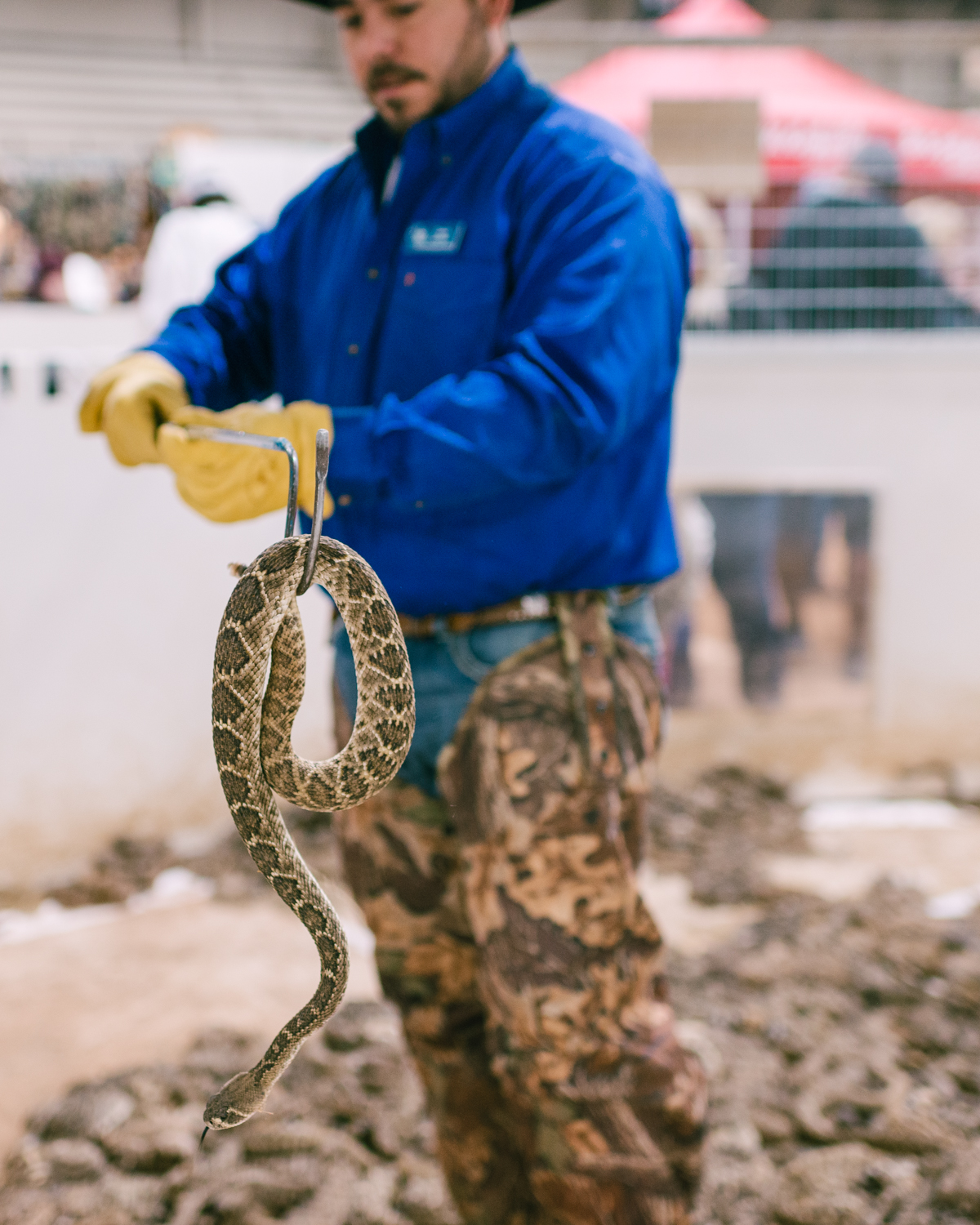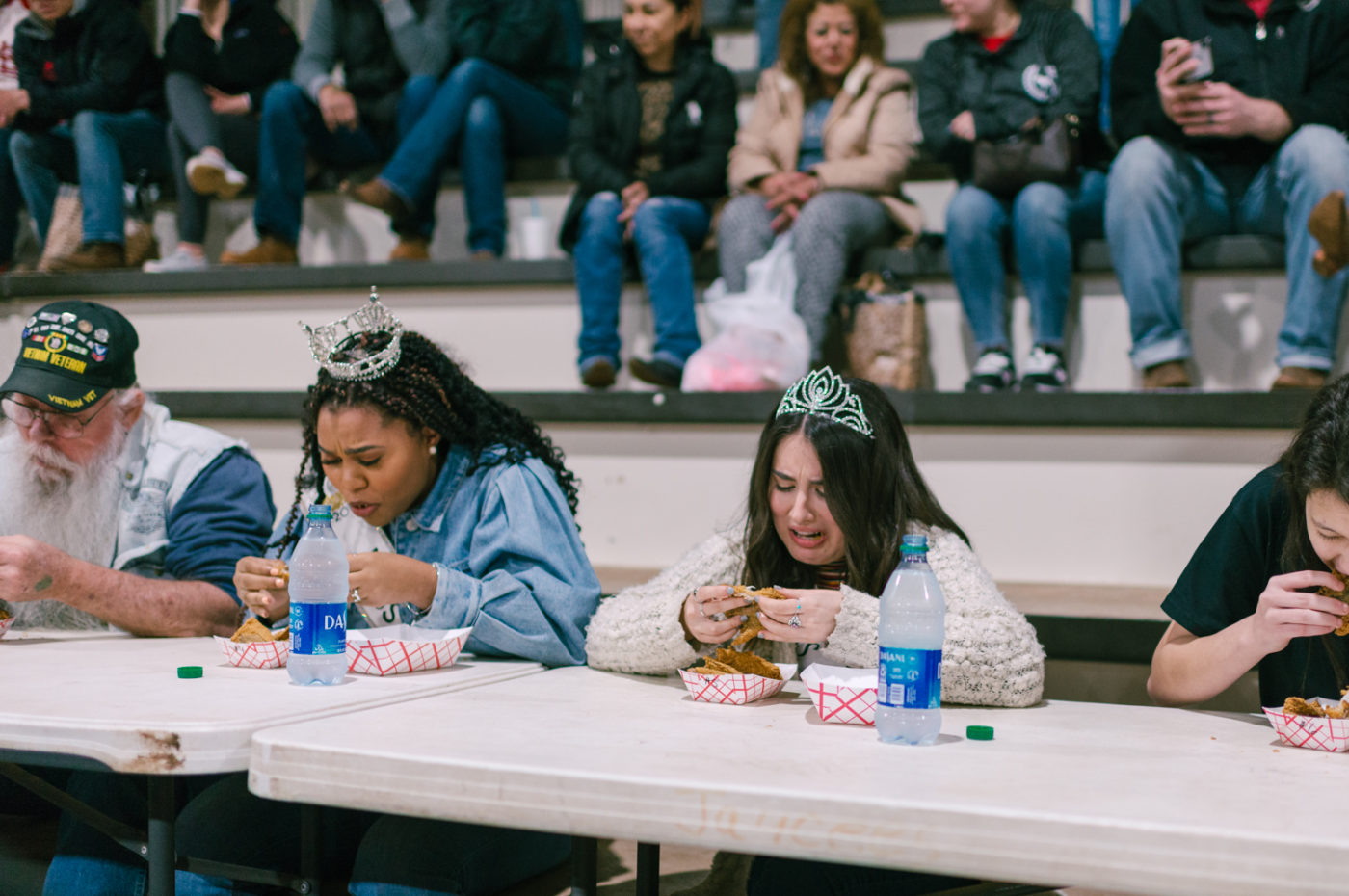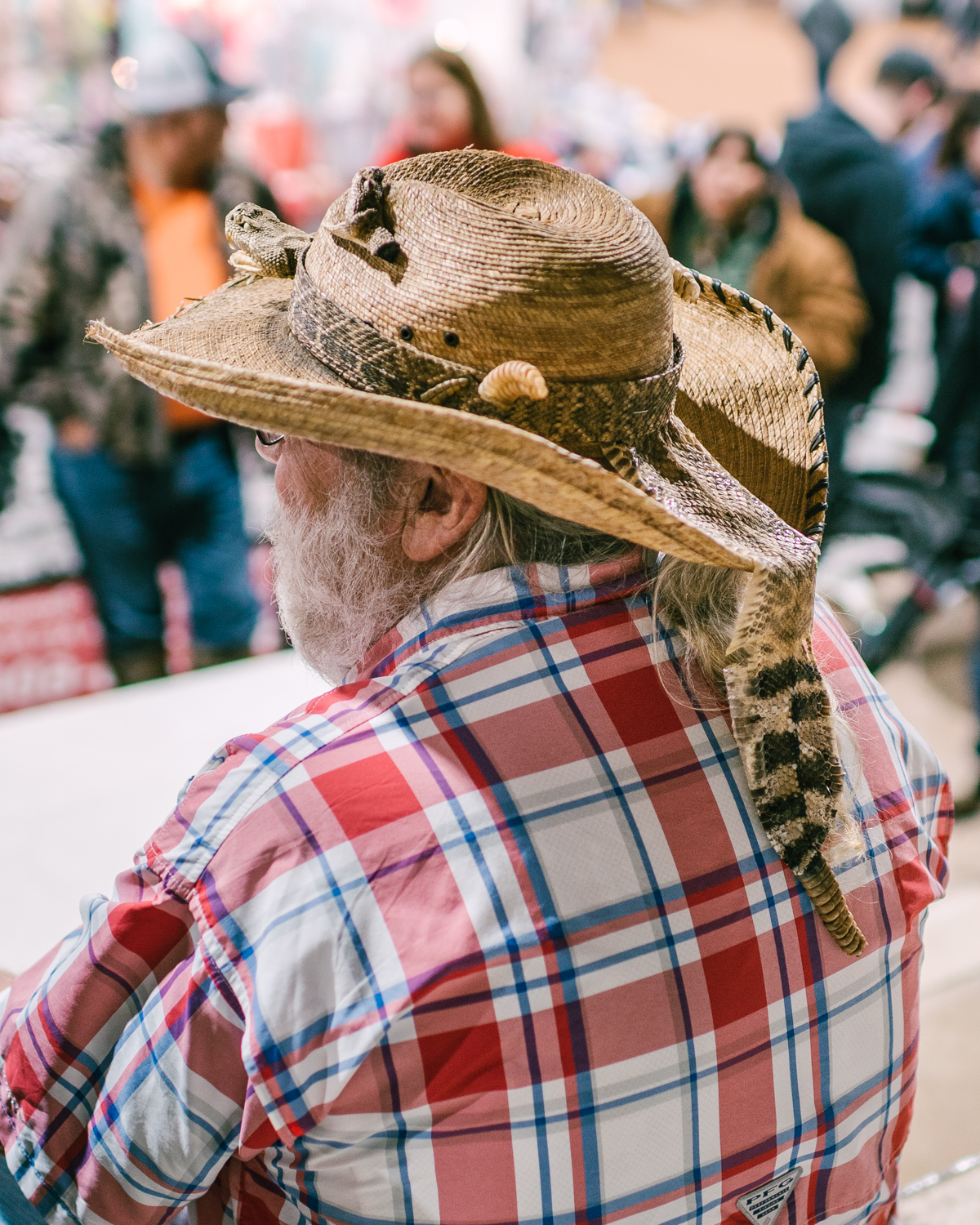Photos by Jenny McCabe
In the words of Greg Wortham, Mayor of Sweetwater, Texas, “Pasadena has its roses…We have rattlesnakes.”
Since 1958, Sweetwater has had a time-honored tradition. For one weekend every March, the quiet, rural country town comes alive with the sound of rattlesnakes. Hunters from all over the area bring their haul of snakes to be weighed, milked for venom, used in educational exhibits, and then sold off for their meat and skin. On average, 4,000 pounds worth of rattlesnakes is brought in while tens of thousands of visitors come for the event—bringing in $8.4 million dollars to the local economy in just one weekend.
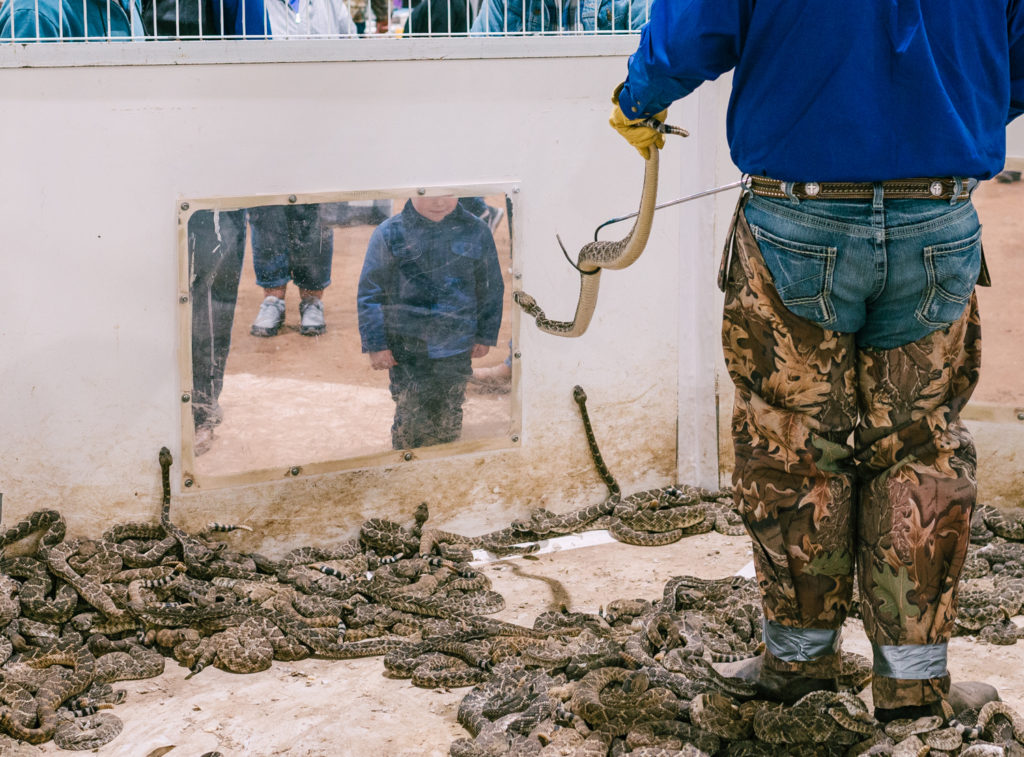
The roundup originally started out of necessity. Sweetwater has long had a legitimate problem with rattlesnake infestation ever since the town’s founding in the 1800s. In the 1950s, there were so many rattlesnakes in the area that doctors were getting overwhelmed with the number of poisonous snakebites and the cattle population was at serious risk from lethal rattlesnake-related injuries. Thus, to curb and control the population, the locals began holding an annual event which, over time grew to be the self-labeled “World’s Largest Rattlesnake Roundup.”
The festival includes events such as the Rattlesnake Parade, Miss Snake Charmer Pageant, snake eating contest, beard contest, most pounds of snake, longest snake contest, a carnival, and much more.
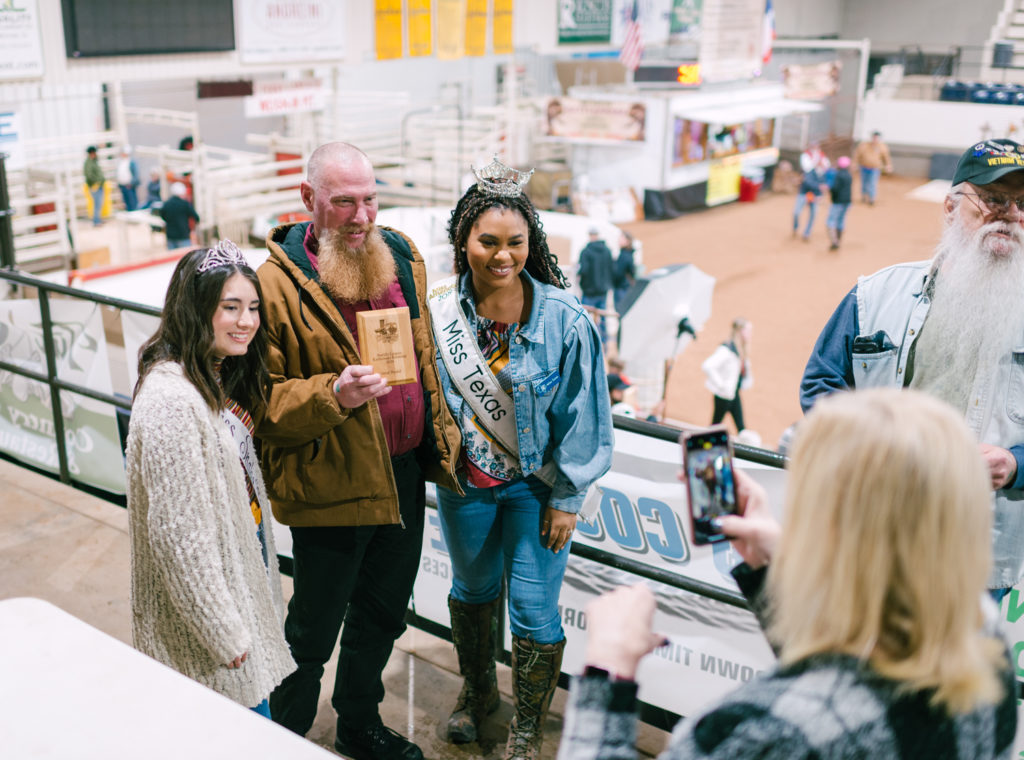
Not everyone is sweet on the Sweetwater Roundup. Animal rights activists have voiced concern with the event, claiming that it goes further than what is needed to keep the snake population under control. According to activists, the financial incentives combined with no cap on the number of snakes captured results in hunters decimating the rattler population to dangerously low levels. Hunters, on the other hand, disagree, stating that they have seen no drop in den populations.
Another area of concern for activists is how the hunters harvest the snakes. One technique practiced by some hunters involves filling dens with gasoline to draw them out. Some claim that this method of collection is inhumane and harmful to the environment. Texas Parks and Wildlife did come close to banning the gasoline practice in 2013 and again in 2016. However, as of 2017, the practice remains legal.
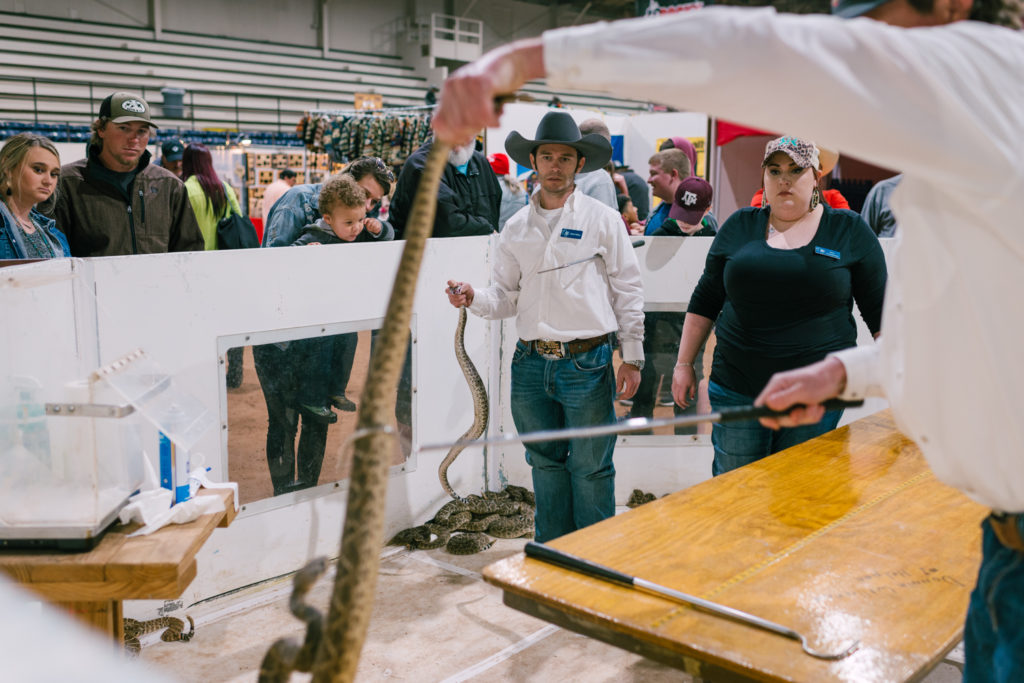
Controversy aside, the tradition still continues. Whether it be animal rights activists or the 2020 Coronavirus outbreak, the event moves forward. Despite a global pandemic, the little town of Sweetwater still held its four-day long roundup this spring for the 62nd year. With gatherings all around the globe being canceled, the “World’s Largest Rattlesnake Roundup” may have in fact been the world’s largest gathering of any kind this past month.


